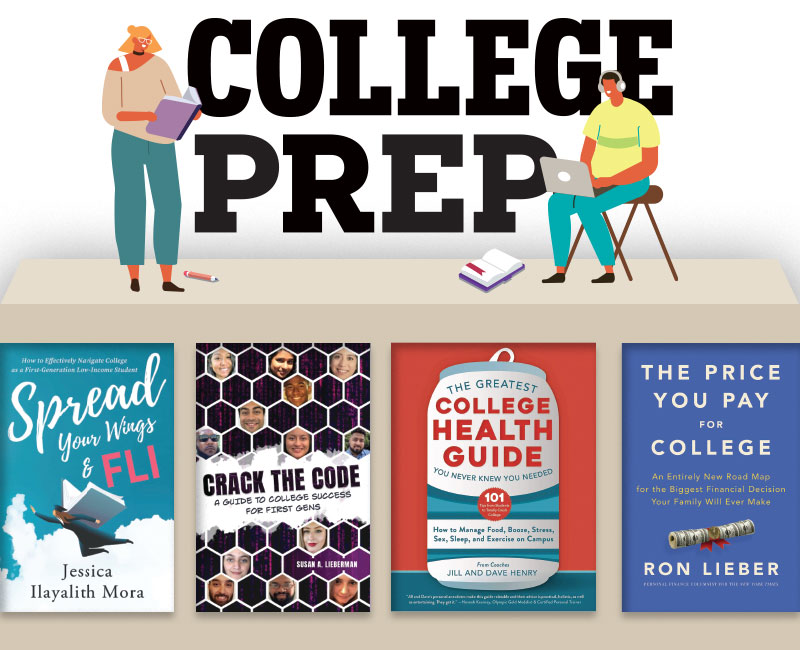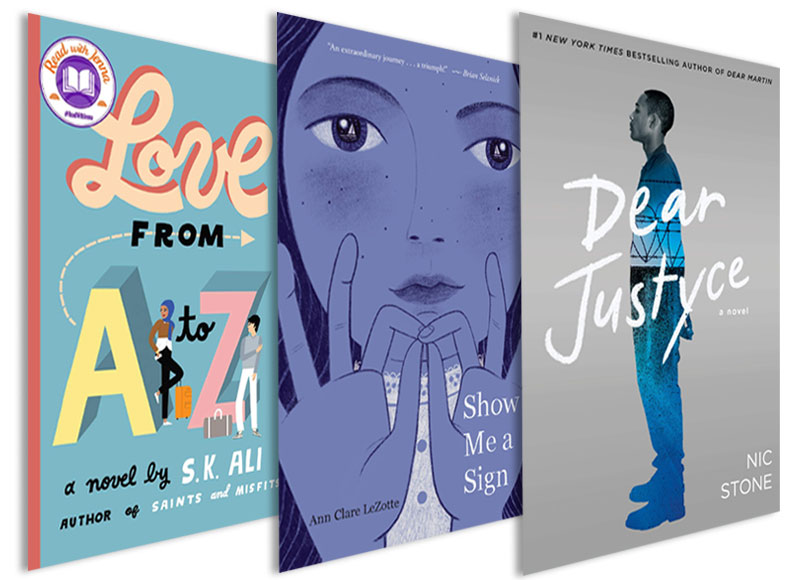Thinking About Male Sexual Violence and Althea and Oliver by Cristina Moracho (The #SVYALit Project)
Karen’s Short Thoughts: An amazing, complicated and at times flawed look at the relationship between two childhood friends.
Publisher’s Description:
What if you live for the moment when life goes off the rails—and then one day there’s no one left to help you get it back on track?
Althea Carter and Oliver McKinley have been best friends since they were six; she’s the fist-fighting instigator to his peacemaker, the artist whose vision balances his scientific bent. Now, as their junior year of high school comes to a close, Althea has begun to want something more than just best-friendship. Oliver, for his part, simply wants life to go back to normal, but when he wakes up one morning with no memory of the past three weeks, he can’t deny any longer that something is seriously wrong with him. And then Althea makes the worst bad decision ever, and her relationship with Oliver is shattered. He leaves town for a clinical study in New York, resolving to repair whatever is broken in his brain, while she gets into her battered Camry and drives up the coast after him, determined to make up for what she’s done.
Their journey will take them from the rooftops, keg parties, and all-ages shows of their North Carolina hometown to the pool halls, punk houses, and hospitals of New York City before they once more stand together and face their chances. Set in the DIY, mix tape, and zine culture of the mid-1990s, Cristina Moracho’s whip-smart debut is an achingly real story about identity, illness, and love—and why bad decisions sometimes feel so good.
ADVERTISEMENT
ADVERTISEMENT
Karen’s Longer Thoughts:
As I said, this is an amazing and rich book with very complicated characters.
Althea and Oliver both come from single parents home, Althea lives with her father the professor and she has a very strained relationship with her mother who took off. Oliver lives with his mother, his father died some time ago.
Oliver suddenly develops a rare condition in which he will unexpectedly fall asleep for days, weeks and sometimes even months at a time. Kleine-Levin Syndrome is a very real disease, though I had not heard of it until reading this book. While Oliver struggles with what this syndrome means to him – he loses whole chunks of his life – the syndrome also puts a real strain on their friendship.
Althea is also very lost, in part because she very much wants her relationship with Oliver to be something more, but Oliver does not return those feelings. He is, in fact, very clear about this. So when Oliver starts checking out for long periods at a time, Althea is forced to find an identity for herself apart from Oliver. It gets messy. Also, please note, some very real spoilers occur from this point on.
And this is where things get complicated. Althea really begins to spiral and is at times a very unlikable person. But worse yet, she does something horrific at one point when Oliver is in the midst of one of his long sleeps. You see, Oliver will some times “wake up” for a brief period, though he is most definitely not himself during this brief moment of awakeness. This fact is established in a previous scene where Oliver wakes up and goes on a hostile eating binge at Waffle House, only to crash back into the deep, unwakeable slumber on the way back home. In another instance, an episode that I think can only be called rape happens, as Rob Bittner at Sense and Sensibility and Stories points out:
Oliver is having a very difficult time of it. He is suffering from a condition in which he ends up falling asleep for extended periods of time, and when he does wake up during these periods, he isn’t quite himself. Not only that, but he doesn’t remember what’s happened during these periods. During one of these times, Althea, who likes Oliver and wants to get closer to him, ends up in a position where she has him turned on and she’s turned on and then they have sex, though Oliver is in the midst of one of his episodes! This, my friends, is an instance of rape. Oliver doesn’t remember it. His virginity is taken from him. He has been sexually assaulted!! And somehow this is not a HUGE thing later in the book aside from a few moments of inner conflict that each character explores, but that’s not enough, in my mind. Okay, maybe Althea feels she isn’t a rapist because Oliver was “conscious” during the incident, but damn it, SHE TOOK ADVANTAGE! For crying out loud, if Oliver had taken advantage of Althea during such an episode, I can only imagine the outcry!
As Rob points out, Althea definitely takes advantage of Oliver in a moment when she knows that he is not fully able to consent. It’s a very unique parallel to the drunken/drugged scenario we often hear being discussed. And worse, Oliver has already made it clear to her that he wants their relationship to remain in the friendship territory. Althea is very haunted at times – and sometimes very angry – because when Oliver finally wakes up from this episode, he has no memory of what has happened. The dialogue looks something like this:
“I’m not upset because we didn’t have sex, I’m upset because we did. And you don’t remember, and it’s like it never happened, but it did happen, and you keep complaining because things are different except nothing’s different.” […]
“I feel nauseous. I told you, I said I wasn’t ready–“
“You wanted to,” Althea says stridently.
[…] “You stupid bitch, it wasn’t me! You knew it wasn’t me, you knew I wouldn’t remember, how could you let it happen? I didn’t want to, I told you–“
“Oh no? You didn’t want to? What did you think happened then? Do you think I forced you? Do you think I held you down and made you do it?” […]
“You knew it was a big deal to me,” he says. “You knew I never would have wanted it to happen like that. How could you not tell me? You’ve been lying for months.” (128-9) (Again, this is taken from Rob’s Sense and Sensibility and Stories page)
Author Brandy Colbert (Pointe) and I have been having behind the scenes conversations about this book for some time now. Librarian Angie Manfredi pointed the above review out to me, and I was so glad that she did because it was another voice to add to this conversation. I had even asked Brandy Colbert to write a piece on this title for The #SVYALit Project, because without a doubt there are some interesting conversations to be had about what consent is and what it isn’t. And for me, I feel that this moments falls squarely in the realm of not consent. Althea takes advantage of Oliver in a vulnerable moment and he has no recollection or memory of it happening.
Later, in another part of the story, Althea gets drunk and has sex with a boy knowing full well that she is going to do all of this and regret it later. This is another complicated sexual encounter that highlights the intense emotional journey Althea is on. At this point, Althea is so utterly lost. Eventually, she concocts a story about going to visit her mother and ends up going to New York where Oliver is not enrolled in a study for his syndrome. She spends a few nights sleeping in her car before finding a small group of people who take her in for a while.
In his review, Rob goes on to state:
I have definite trouble with this aspect of the plot. I understand that much of the novel deals with Althea trying to work through what she has done, and Oliver has his moments of trying to come to terms with the situation. BUT, besides the one exclamation above, the situation is treated not like a rape (except briefly in some dialogue), but more like a drunk accident, or at least something less horrific. Just because a body is responding to a sexual situation, that does not mean consent is being given, especially since she knows he’s suffering from some type of syndrome (even if it is unknown what that syndrome is, at the time.) But even later, when the syndrome is described, the instances of hypersexuality isn’t mentioned or expanded on except through discussions by secondary characters who basically describe it as boys being boys, and boys are just really horny.
And later this:
ADVERTISEMENT
ADVERTISEMENT
This could have been a great opportunity to discuss rape of a male character in the vein of Speak, but alas, the opportunity was lost. Consent is a huge issue these days, and I felt that it could have been discussed within the book in much clearer and more direct ways. As the brilliant Angie Manifredi noted during a discussion about this book, “What will a teen reading [this book] think? HIS BODY DID WANT IT. What [the reader] needs to ‘learn’ is that’s not what makes rape, that’s not what consent means, and you can be raped even if your body is ‘cooperating.'” This is something that needed come out much more clearly within the book, but unfortunately did not. (You can read the full review here)
I agree with Rob about this, this scene read to me as clearly rape and there are some important discussions we can be having about consent and sexual violence in this title. As Rob mentions, the body can respond in physiological ways that betray what the mind is thinking. Boys can still get an erection, girls can still lubricate, and sometimes, victims even have an orgasm in the midst of a rape – this doesn’t mean the experience isn’t rape, because many of these responses are biological responses that don’t represent what the heart and mind truly want.
Shortly after I read this book, I watched an episode of Homeland. In this episode, we see a man, Peter Quinn, drunk poolside. He is so drunk when he stands up to talk to a woman who has just appeared he starts to fall down. She comments on how drunk he is. Then it cuts away to a scene of them both having sex. A commenter on the IMDB boards asks why no one in the media is bemoaning the fact that this sexual encounter should clearly be called rape given the current discussion we are having about enthusiastic consent. In fact, some celebrated this scene as an empowering moment where a “fat girl” was seen having sex on TV. Although some have questioned the celebration of this scene, it has tended to be commentors having discussions on discussion boards and not the media. The Good Men Project even has a post discussing this scene that mentions several times how drunk Peter Quinn is but never seems to even suggest that this moment might be rape, instead focusing on people’s revulsion that he might choose to have sex with a “fat girl” (their words, not mine).
Together, these two moments in various forms of art are a stark reminder that we still have very huge double standards when it comes to discussing the rape of women vs. the rape of men. This double standard is something I pointed out on the SVYALit Tumblr during last season of Agents of Shield when a character uses her magical ability to coerce Ward into having sex with her. I believe in all three of these instances if the genders had been reversed then the media would be discussing these scenes very differently. But the genders aren’t reversed and we should still be having these discussions because none of these scenes would qualify as truly consensual acts and we should be talking about that.
For example, read the publisher’s book description above again. It ends with this line:
Set in the DIY, mix tape, and zine culture of the mid-1990s, Cristina Moracho’s whip-smart debut is an achingly real story about identity, illness, and love—and why bad decisions sometimes feel so good. Is the “bad decision” they are referring to the moment when Althea has sex with her best friend who is in the midst of a rare but devastating medical condition that alters his ability to truly consent in this moment? If that is the “bad decision” they are referring to, then I think it is a problematic way to classify this decision.
I’ll be honest, Althea and Oliver is a stunningly well written book and it introduces two very complex and emotionally intriguing characters. It’s a really good book. And I’m not entirely sure that the intent of the author isn’t, in fact, to make us think about the topic of consent and male victims of rape by presenting us with a highly complicated scenario and leaving the reader with no real easy answers about how to talk about this scene. Oliver himself tries several times to make others understand how devastating this all is, and he finds himself butting up cultural misconceptions time and time again. One character even suggests that he shouldn’t be upset about what happened because he got to have sex with a hot girl, what’s to hate about that? Which is a very real reaction that Oliver would face time and time again in this real world. All guys are horny all the time, so he should just be excited he got to have sex with a hot girl – right?
The truth is, boys can and often are the victims of sexual violence. And because our culture still doesn’t understand how often it can happen, we still fail to call out instances of it that we see in the various arts we consume. Even if that isn’t author Cristina Moracho’s intent here, though I maintain that it may in fact be, she has given us a richly nuanced story that allows us to think about the finer points of consensual sex by giving us this complex narrative and fascinatingly, emotionally complex teens and then asking us to consider a scenario in which a boy loses his virginity in a moment in which he is not truly himself and later has no memory of. And then after you read it, reverse the genders and ask yourselves how you would feel about this story.
In a word, Moracho may be incredibly brilliant. Much like great science fiction does, Moracho has crafted a story that makes us think about the finer points of our culture – including how we view men and sex and identity – by holding up a type of funhouse mirror. And she creates some profoundly amazing teenage characters on a rich emotional quest to do it.
Edited to add: This would make a really interesting companion read with INEXCUSABLE by Chris Lynch as we look at the mindset and beliefs of perpetrators of sexual violence.
Filed under: #SVYALit, #SVYALit Project, Althea & Oliver, Consent, Cristina Moracho, Male Rape
About Karen Jensen, MLS
Karen Jensen has been a Teen Services Librarian for almost 30 years. She created TLT in 2011 and is the co-editor of The Whole Library Handbook: Teen Services with Heather Booth (ALA Editions, 2014).
ADVERTISEMENT
ADVERTISEMENT
SLJ Blog Network
2024 Books from Pura Belpré Winners
In Memorium: The Great Étienne Delessert Passes Away
Winnie-The-Pooh | Review
Parsing Religion in Public Schools
ADVERTISEMENT









“I'll be honest, Althea and Oliver is a stunningly well written book and it introduces two very complex and emotionally intriguing characters. It's a really good book. And I'm not entirely sure that the intent of the author isn't, in fact, to make us think about the topic of consent and male victims of rape by presenting us with a highly complicated scenario and leaving the reader with no real easy answers about how to talk about this scene.”
Such an interesting commentary on what sounds like an incredibly thought-provoking book! Also very apropos given this weekend's conversation and your post yesterday about writing negative reviews. A book this nuanced demands a nuanced review, as you have given it, and forces us to think deeply and critically about the issues it brings up—and that can only be a good thing!
Thank you for this comment. I'm looking forward to talking about this book with more people, definitely.
Thank you for this post! I’m listening to this book right now and I was feeling so uncomfortable about the way this incident was presented. What really strikes me is the fact that she KNEW he wouldn’t remember it. This is made even more clear by the fact that she doesn’t talk about it when he wakes up. I’ve got to stick with this book for an audiobook review, but if that were not the case I don’t know if I would continue…
Emily, I am so glad to hear you say this. I kept wondering if I was alone in my thoughts about this until Angie showed me Robert’s review. Robert and I have had some good discussions about it at this point. There is a lot about this book that I think is really well done, but I do think this part is very problematic.